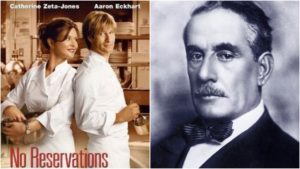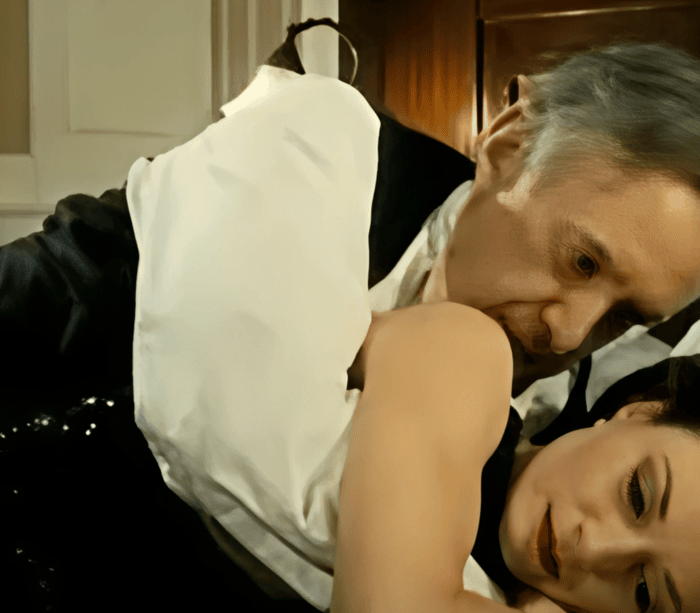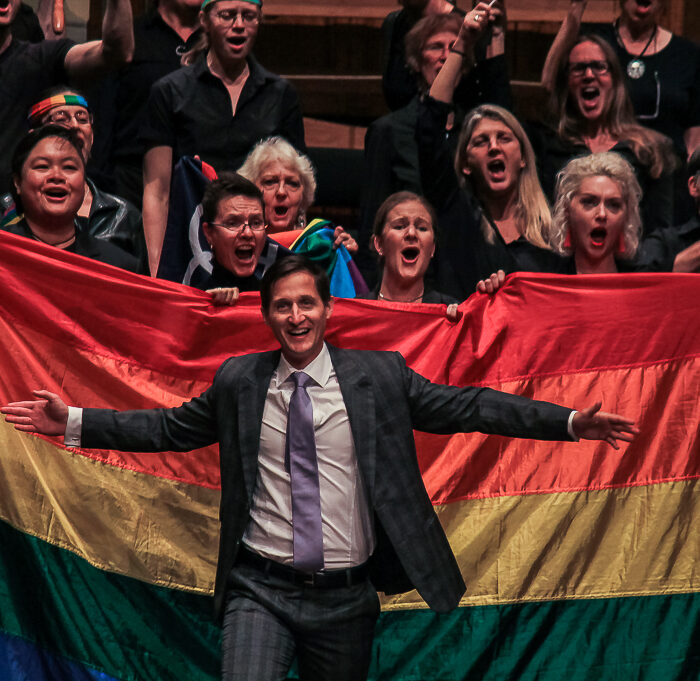
Opera Meets Film: How Puccini / Verdi Bridge Gap Between Catherine Zeta-Jones & Aaron Eckhart in ‘No Reservations’
By David Salazar“Opera Meets Film” is a feature dedicated to exploring the way that opera has been employed in cinema. We will select a section or a film in its entirety, highlighting the impact that utilizing the operatic form or sections from an opera can alter our perception of a film that we are viewing. This week’s installment features “No Reservations.”
The Catherine Zeta-Jones and Aaron Eckhart rom-com is hugely dependent on music to tell its story. And opera is in many ways at the core of how this film has its musical dialogue with the viewer.
The film relies heavily on the technique of montage to tell its story. The main characters have a day out together and director Scott Hicks and editor Pip Karmel’s instinct was to have the images cut through time, one after another, with music providing emotional guidance and support. In many ways, this is opera in a nutshell, thus giving the film its own operatic structure. We feel these setpieces throughout and it is no surprise that the film nods quite openly to opera itself throughout the movie.
The film brings us into the world of opera precisely when Eckhart’s Nick arrives on the scene. Kate, the protagonist, has been sent away from her job for a few weeks to get some therapy after the tragic death of her sister and the sudden appearance of her niece in her life. She is used to running a sturdy and strict operation in her kitchen, but her return is unusual for her.
As the camera tracks through the restaurant, we faintly hear “Nessun Dorma” in the distance and drawing closer as she gets closer to the kitchen. She enters and we are greeted to Nick for the first time, imitating a recording of Luciano Pavarotti of the famed aria. His poor singing is comic and adds a layer of sympathy for the character almost immediately. Given that it is opera’s very first appearance in the film, it also presents a major tonal shift from an aural standpoint for the viewer.
Nick, like opera, comes in and out of nowhere with tremendous force and strength.
From here on out, opera becomes somewhat of Nick’s leitmotif in the film. There isn’t a scene in the film that uses opera without Nick nearby. Many of them take place in the kitchen, including recordings of “Cielo e mar,” “La donna è mobile,” and “Libiamo né lieti cailici” from “La Traviata.” These brighter pieces are all about emphasizing the cheery ambiance he brings to the kitchen. Worth noting is that a tenor voice is quite prominent here, furthering the notion that Nick is in control.
But opera, and specifically the music of Puccini, becomes a cornerstone of expressing the growing love between Kate and Nick as we hear “O mio babbino caro” and “Un bel di vedremo” during more intimate scenes between them. The two major soprano arias appear specifically in moments that take place at Kate’s apartment, but also link her directly to Nick through the artform.
The burgeoning love is also clinched with an opera aria. As Kate seeks out Nick to reconcile with him at the film’s climax, we hear music from Verdi’s “Aida.” And as you may guess, it’s a tenor aria – “Celeste Aida.” Now we are on Nick’s turf and so the shift back to a male voice emphasizes his own control of the relationship.
This relationship dynamic is certainly an interesting way to examine the musical choices, but it must be said that from a sensory perspective, the filmmakers are counting on opera’s transcendent and highly charged emotional power to add romantic flavor to the interactions between the two characters; this is the impact that they are hoping for with the mainstream audience this film is intended for.
And to this point, it certainly serves to contrast that with the rest of the film’s soundtrack which includes such songs as “Count on My Love,” “Via con Me,” and “The Lion Sleeps,” among others. Use differing genres of music allows for the shift to opera to clearly define a certain mood or idea for the viewer throughout the viewing experience; in this case, we quickly come to associate opera with Nick and the romance he has with Kate.


